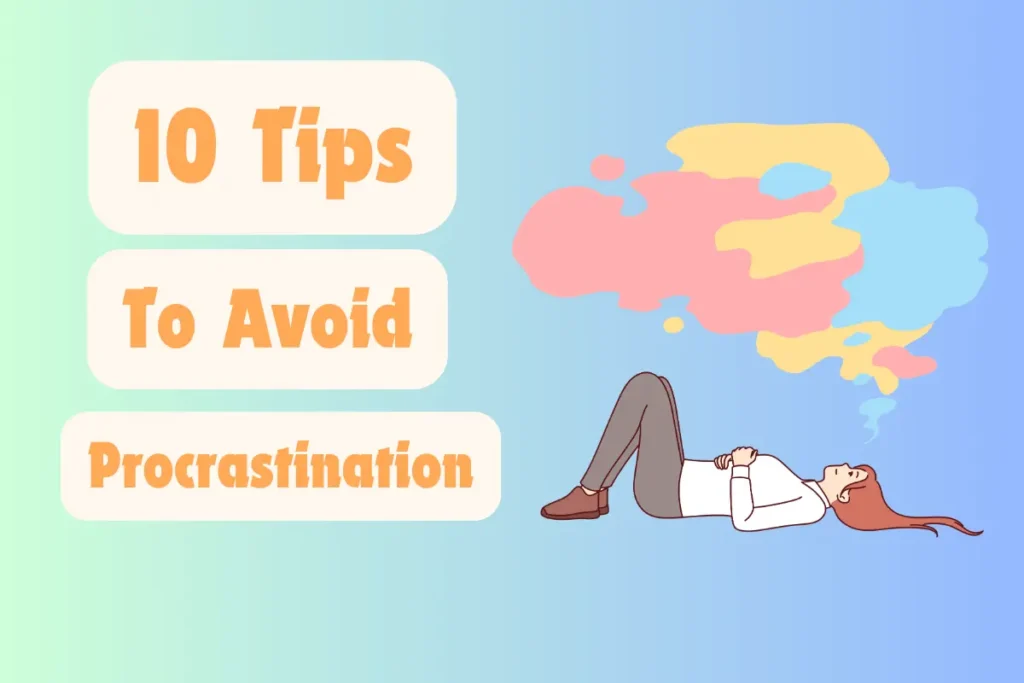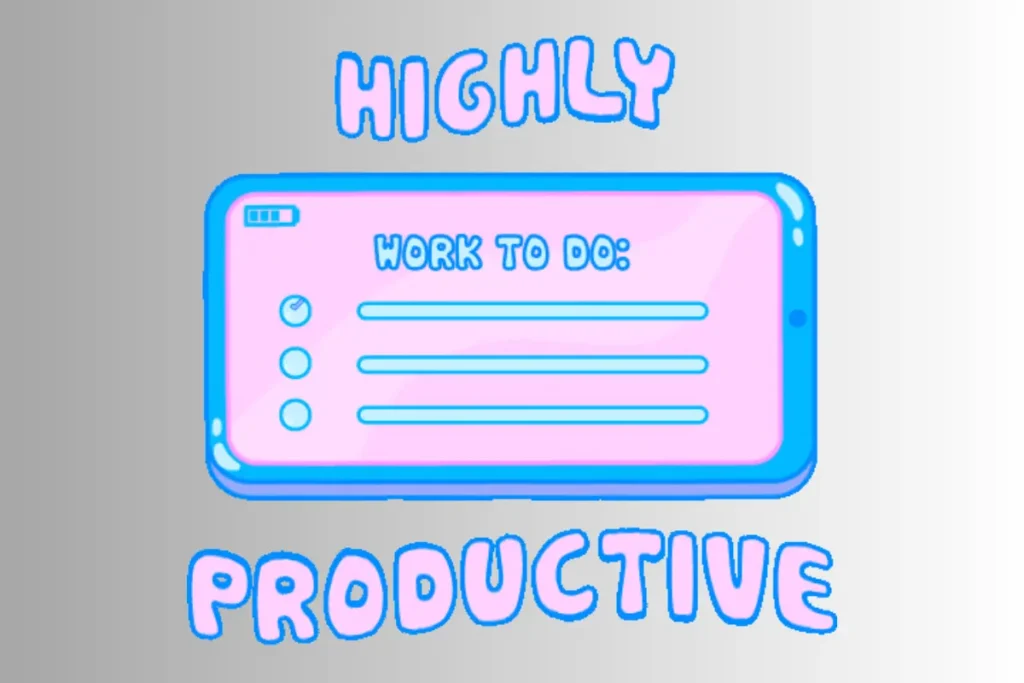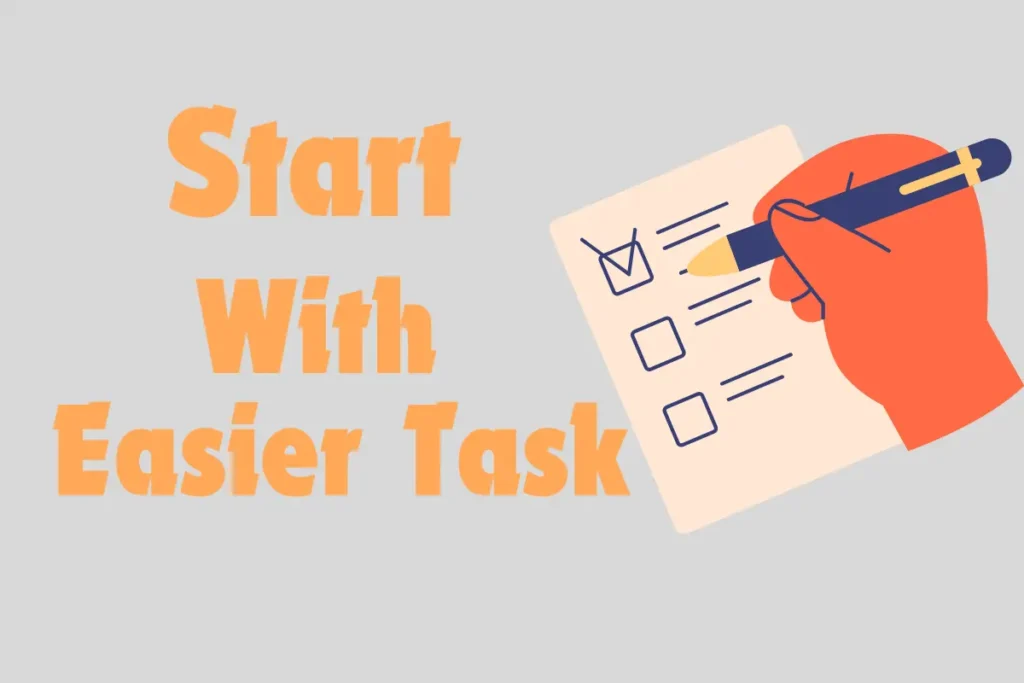Many students, teachers, and professionals procrastinate. They attend much of their work late. This leads to low productivity and much stress. Procrastination can be challenging to avoid, we’ve got to understand the causes of procrastination. Then, we’ve got to seek solutions to them.
In this article, we will discuss 10 tips that will help you to avoid procrastination. They can solve procrastination problems and help you achieve your academic goals.
What is Procrastination?
The act of postponing something that should have been done at an agreed time or earlier. It comes with guilt, anxiety, or stress. Some people have problems with getting up and going to work. It is not just a question of Laziness but a combination of psychological, emotional, and ecological factors. These factors can make someone sleep through their morning routine. It means you must analyze its causes to use the best strategies for procrastination.
Causes of Procrastination
Procrastination is common among parents and most especially among students. Other cross-sectional studies indicate that rates of procrastination differ between students and the general population. It is found that 80% – 90% of students procrastinate while only 15% – 20% of the general adult population engage in this practice.
Fear of failure, perfectionism, time management issues, lack of structure, and depression. These are some major causes of procrastination.
10 Tips to Avoid Procrastination

1. Admit That You’re Procrastinating
The first step in avoiding procrastination is to admit that you are a procrastinator. People can acknowledge some of the first signs of procrastination. They notice when they feel too stressed, worried, or fleeing from some duties. Admitting that you are procrastinating is the best way to overcome procrastination.
2. Find Your Productive Time

Everybody has a different work or study schedule, which also affects productivity levels. State the convenient periods of the day when you feel energetic and concentrated. It’s best to focus on integration work. Use these times to work on the hardest tasks. Save easier work for times when you are less focused, and manage your time as it helps you to reduce procrastination.
3. Create a To-Do List
A to-do list assists in how organized and focused you are in the completion of those tasks that are set aside. One should make a list. It should contain the tasks to be done and their priority. Breaking tasks into smaller segments helps to compress them. You can then do and check off each part. It helps you feel as though you’ve achieved something, or it encourages you to up with the work. By creating a to-do list you’ll be able to avoid chronic procrastination.
Related Post: How to Study Faster
4. Reduce the Number of Decisions You Are Making
According to decision-making, many decisions make it worse. Don’t make all those small choices. They may be a key part of what you want to achieve soon. Decide your goals and priorities first. It also helps you not get overwhelmed or drained by making too many choices at once.
5. Start with the Easiest Task

As one struggles through a difficulty or gets a tough assignment, one feels a lot of pressure. What may sound simple is, in fact, the loudest. The first step might make you feel good and give you needed motivation. This way, you gain confidence and motivation. You’ll need them for other tough tasks in a course. Starting with easier tasks also reduces distraction.
6. Start with Small Steps
Lack of motivation comes from feeling a task is too big. This feeling leads to procrastination. Fragment these tasks into subtasks that are manageable in the course of a session. People should have it in mind that by focusing on one step at a time, they can make some progress.
7. Set a Deadline
Deadlines remind you. When set well, they ensure that you keep working. The work suffers if there are no realistic time frames. So, set achievable targets and time frames to do the task well. This reduces stress. It lets you study stress-free and prepares you for exams. So, it removes the need to cram at the last minute.
8. Change Your Environment
The condition and context in which one works have an influence on productivity. List the activities that hurt your productivity or limit your focus. These include social networks, email, or phone notifications. Please don’t use them during work, notice the surroundings. Then, design a setting for the greatest productivity.
9. Finish Your Day Before It Starts
Many people say that mornings are the best. People accept that they can maximize the morning. This is because people know they have a few hours ahead of them. They’ll probably procrastinate on their work.
10. Make Progress, Not Perfection
Living up to perfection can cause a dramatic reduction in productivity. The key message here is to focus on making improvements. This is more important than the need to arrive at the destination, which is not possible. Accept it and consider it proof that you can still make a difference and strive for more progress.
Conclusion
I don’t think that students can beat procrastination. Many of us struggle with it. But, that doesn’t mean we can’t solve it. It’s wise to find out why procrastination happens. Then, work on ways to beat it. This will help you succeed in school and fight stress well. Don’t forget, planning is a key strategy against procrastination. These tips help you to stop procrastination and help you reach your goals.
It’s a slow process that needs patience, self-compassion, self-kindness, and persistence. They begin by admitting they have procrastinated. They make a timetable of work times and list what to do. They cut decision weaknesses and take gradual steps. With these ideas, you can learn how to escape procrastination. This will help you succeed in your studies and help you to stay focused.
Why is Procrastination Bad?
It’s hard to point out one part of life that isn’t hurt by delaying. It can cause losses of motivation. Also, it can cause declines in grades or credits. And it can cause sluggishness, inefficiency, and poor self-confidence.
They also lead to late submission of assignments. This brings penalties, missed payment deadlines, and loss of good opportunities. They also cause other productivity losses in the workplace. Also, it will cause mental disorders. These include depression, anxiety, and stress. It will also harm physical health due to constant stress and neglect of self-care.
How to Stop Procrastinating?
To stop procrastination, one should know what is at risk due to it. They should work to overcome it to manage time better. Substituting is very helpful. People should know that procrastination is common, and they can fight it. Rethink your thinking. Change how you speak about yourself and tasks. Turn it positive. Stress the need to do everything on time, and the bad parts of procrastination.
Why Can’t I Stop Procrastinating?
Most people find it hard to stop procrastinating. It’s due to our mental and emotional issues. To avoid falling prey to procrastination, use two strategies. First, understand its root causes. Second, use self-control and resolve to change your behavior. Why do we procrastinate, and what are the psychological factors behind it?
Why Am I Procrastinating So Much?
Many factors cause procrastination. For example, short-term thinking causes problems. So, we’ve performed unpleasant tasks, feared, felt overwhelmed, and maintained high standards. Not seeing oneself in the future, long delays and low motivation also hurt. Effort and inertia cause these. Procrastination is fine if you identify its causes. Then, you can address them and end this vice. You’re sure you can deal with them. This will help you avoid procrastination and reach your goals.










